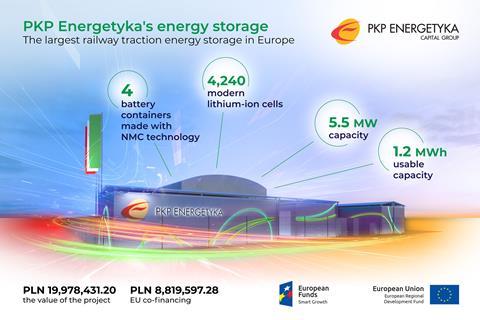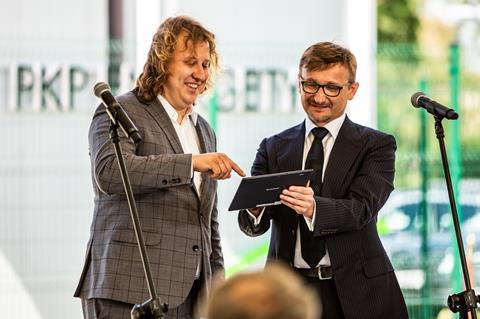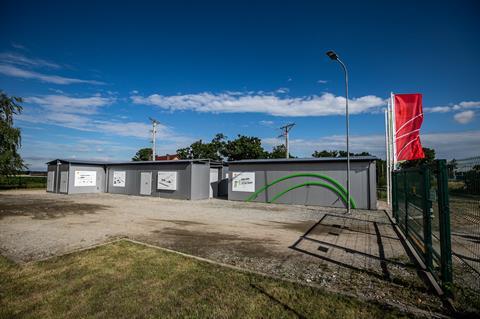
POLAND: Traction power supply infrastructure company PKP Energetyka has built a lithium-ion battery energy storage facility designed to stabilise the traction electricity supply and allow for more efficient use of renewable energy sources.
PKP Energetyka says the energy storage facility installed at Garbce, 50 km from Wrocław, is the largest in Europe. It contains four battery containers with a total of 4 240 lithium ion cells providing a usable capacity of 1·2 MWh.
The batteries are charged slowly, then the energy released quickly as a train passes. The equipment is rated at 5·5 MW and can provide enough power for a train traveling at 160 km/h, including a Pendolino.

PKP Energetyka said the DC/DC power converter is ‘innovative on a European scale’, with energy storage systems on other DC rail networks producing an AC output which requires additional conversion and associated energy losses.
PKP Energetyka management board member Leszek Hołda said energy storage technology would stabilise the power system by increasing the volume of distributed energy without the need to increase connection capacity, and also allow for greater user of renewable energy by ensuring a stabile supply even when it is cloudy or windless.

The €4·4m project has been 45% co-funded by the EU and undertaken in co-operation with the University of Zielona Góra, and suppliers My-Soft, Impact Clean Power Technology and Elester-PKP.
‘During three years of intensive work, we created a solution from scratch that is unique in Europe’, said the university’s Professor Grzegorz Benysek. ‘It takes into account the specifics of the Polish railways and the national power supply system by defining the optimal values of power and capacity. This was possible, among other things, through developing a control algorithm and a selection of energy storage facility parameters.’
Around 300 similar power banks are planned for the Polish rail network, as part of a broader ecosystem including a traction substation and photovoltaic cells to create a local balancing area.
‘Together with PKP Energetyka we worked out a solution that will not only serve its purpose for the next 15 years but will also be the basis for multiplying this type of equipment in other locations’, said Benysek.

















